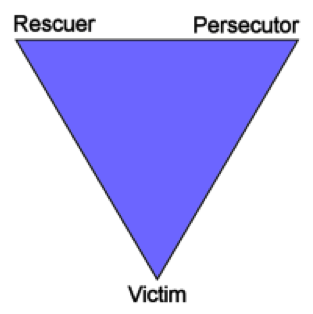Are You Making Life Harder than it Needs to Be?

Conflict and challenges are inevitable. We will always have disagreements regarding priorities, values and meaning. There will always be disappointments, sour relationships and threats on the horizon. But, sometimes, we make it harder for ourselves then we need to.
My wife and I recently visited someone who works as a supervisor. As we were driving home, my wife asked me, “Do you think she likes her job?” I had to think about it. Every time we meet, she talks about the challenges and frustrations that she faces at work. Despite this, my opinion is that she does, in fact, like her job. She just makes it much harder than it needs to be. And, she seems to enjoy that, too.
Some leaders generate challenges and conflict for themselves; moreover, some seem to thrive on it. Some of these leaders are highly effective and competent. Despite this, they’re ultimately working against themselves and the success of those they lead.
Leaders create or shape the template for relationships in their workplace. One of the most common relationship templates is called the “Drama Triangle.”
The psychologist Stephen B. Karpman, M.D. has described this pattern in detail. It’s a common pattern of unhealthy relationships.
Each point of the triangle represents a typical relationship role. These roles have scripted responses. These responses result in on-going conflicts and tension; as well as, reduced creativity and effectiveness.
This pattern is so common in the workplace, many people assume it’s “just the way life is” or the way leadership works.
Each person in the Drama Triangle assumes one of three roles: Victim, Rescuer or Persecutor.
- Victims display a constant need for help. Nothing seems to work out for them. And they don’t feel responsible at all for their situation or circumstances. They insist they lack the ability to change things.
- Rescuers regularly jump in to save the Victims. In the workplace, they are those co-workers who go from place to place “putting out fires.” They find quick, short-term solutions to the latest emergency. And, they often neglect their own needs.
- Persecutors tend to take advantage of the Victims. They blame them for not taking responsibility and criticize the Rescuers for enabling the Victims. Persecutors often find excuses for poor or offensive behavior on their part.
Each person tends to have a preferred role. However, these roles do shift. For example, a Victim might begin to resent a Rescuer’s smothering or controlling behavior. And, that resentment might cause him to shift to a Persecutor role. Suddenly, the Rescuer is now the Victim.
Here’s another example: Let’s say Employee A (Victim) feels that Employee B (Persecutor) is being rude or disrespectful. Employee A goes to the Manager (Rescuer) to get her to save him. The Manager heroically calls Employee B into the office and reprimands her. Employee B feels victimized by the Manager’s persecuting ways and looks for a rescuer in Employee C. Employee B gossips and complains to Employee C about the awful Manager and lazy Employee A. Notice how a new triangle was formed?
What’s most peculiar about these triangles is how each of the roles need, and work feverishly to create, the other two roles. Victims are always looking for someone to save them. Rescuers need to be needed. And Persecutors need someone who is easy to blame or prey upon.
Everyone takes a turn playing one of these roles. However, some leaders actively cultivate them in their workplaces. If there hasn’t been a recent problem or threat that allows them to play their favorite role, they will create one.
Victims always have inexplicable accidents, illnesses or misfortunes. They often need Persecutors to justify their ongoing victim-mindset. And they need Rescuers to save them.
Rescuers will find or create Victims because saving them gives them meaning. Rescuers also need Persecutors because it allows them the opportunity to play the “white knight” or the martyr.
Persecutors need Victims because Victims can be controlled; or, Victims don’t resist poor behavior.
Rescuers and Victims both help the Persecutor find ways to avoid personal responsibility.
Do you recognize this in your workplace? Is there a role that seems more natural to you? Is there a secondary role that you often choose?
Many leaders identify with the Rescuer role. When we play the role of Rescuer, we feel noble as we put out fires and fix things. However, our teams and organizations don’t grow because we Rescuers need people to remain dependent.
Some leaders identify with the Victim role. It’s an easily defensible position. Anyone that suggests that we, as Victim leaders, should change our behavior is automatically labeled a Persecutor. As Victim leaders, we also don’t grow; as we continually wait for someone to fix things or save us.
A rare few of us will admit we identify with the Persecutor role. As Persecutor leaders, we don’t like or respect Rescuers or Victims; however, we must admit we need them as they help us avoid taking responsibility for changing ourselves or creating change in our organizations.
How do we stop these games? It begins by identifying which roles (and with whom) we tend to play.
- If we tend to be a Rescuer, we must ask ourselves, “Do we really need to be the person to solve this problem?” We can examine the underlying patterns and issues. We can intentionally make room for a Victim to find solutions that solve his or her own problems.
- If we tend to be a Victim, we can begin to recognize patterns and begin owning how we might be creating and re-creating the situation. We can own our choices and their natural consequences. We can surround ourselves with people who encourage and challenge us; but not rescue us.
- If we tend to be a Persecutor, similar to the Victim, we must recognize patterns and own our contributions to the problem. We must contribute to addressing underlying issues by learning to accept and value other people’s contributions.
Quitting the Drama Triangle game-playing isn’t easy. In fact, it’s very easy to get sucked back in.
However, as soon as we recognize what’s happening, we can stop and refuse to accept our usual role. This may create tension in the short term, as everyone’s accustomed to his or her role. However, it’s the best choice to begin building a healthier workplace.
Categories
Get Christian’s Newest Book: Train to Lead

Download my free 10-page eBook:
How To Accomplish More Without Doing More:
Eight Proven Strategies To Change Your Life
Discover how to save eight hours during your workweek-even if you're too busy to even think about it. The resource every maxed out executive needs.
